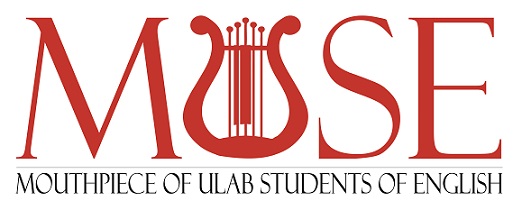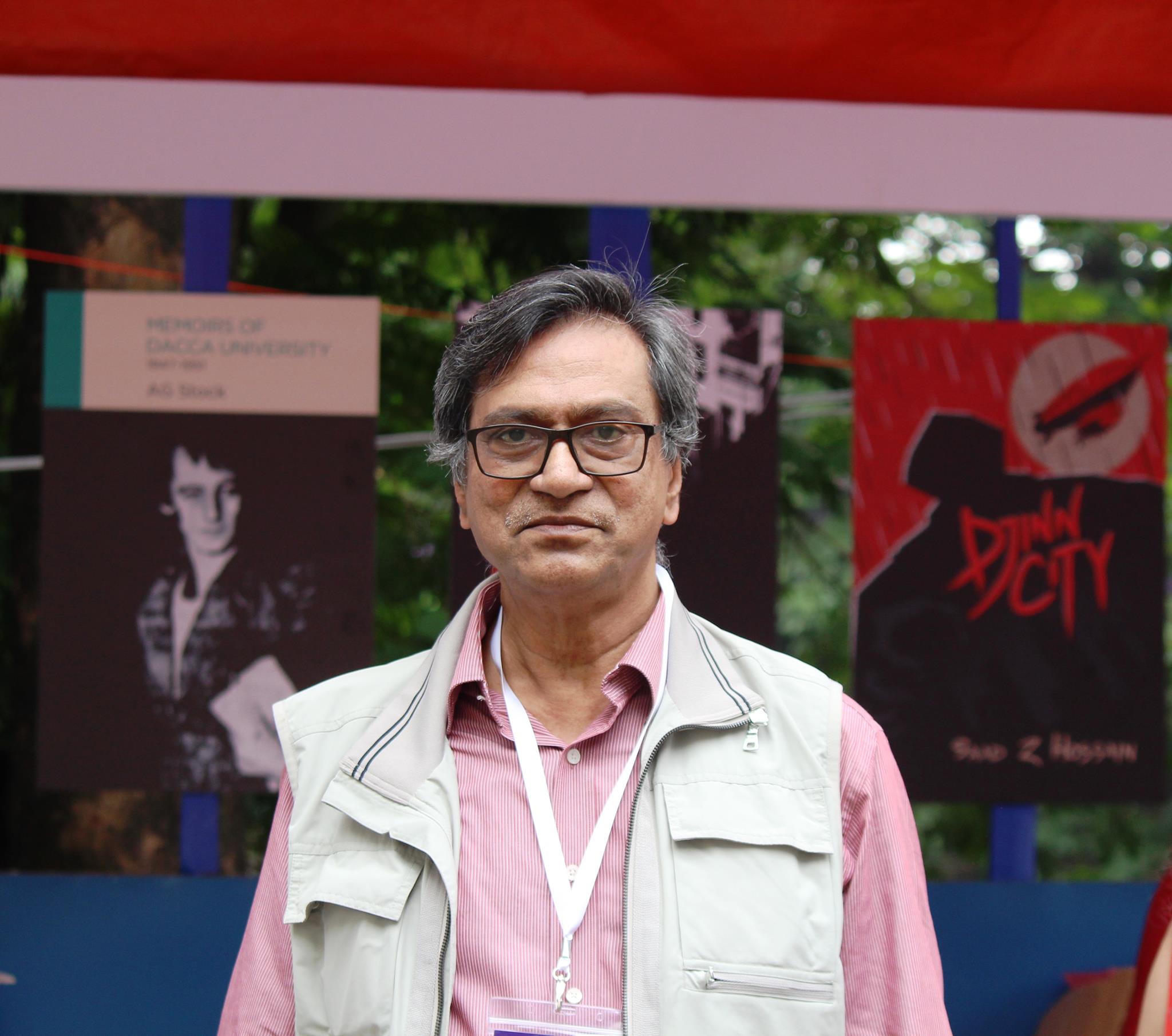An Interview with Professor Kaiser Hamidul Haq
He needs no introduction. A beloved teacher, a guide, an internationally acclaimed poet, and undoubtedly the best of mentors, our very own Professor Kaiser Hamidul Haq is also a freedom fighter who has firsthand experience of the ’71 Liberation War. He is interviewed by MUSE Sub-editors, Shahriyer Hossain Shetu and Umme Hani Anika. Let’s see what he has to say about Bangladesh on her 5oth anniversary of independence:
Sir, you were actively involved in Bangladesh’s fight for independence in 1971. How did you come to join the liberation war and what truly motivated you to free our land? In which sector and with whom did you participate in the war?
I was a second-year undergraduate when the independence war broke out. After the military crackdown, it was clear that the existence of a united Pakistan could no longer be justified. We were faced with an existential choice, and like thousands of my countrymen, I chose to join the liberation army. I was one of sixty-one young men who were selected from all the sectors for officer training, which lasted 15 weeks. We were commissioned as second lieutenants on 9 October 1971 and sent to the front. I was posted to Sector 7, commanded by Lt. Colonel Kazi Nuruzzaman, Bir Uttom. He sent me to Hamzapur sub-sector, commanded by Idris Khan, Bir Bikram. I trained a company of freedom fighters and led them on the battlefield in southern Dinajpur in the Ramsagar area. We had three companies in our sub-sector, alongside an Indian battalion, 12 Garhwal Rifles.
Can you describe any of your face-to-face battles, and which one is your most remarkable memory on the battlefield? Were you afraid at some points?
Instead of repeating what I have already written, let me give you the link to a short essay about my battle experiences: “With the Hamzapur Tigers” <https://opinion.bdnews24.com › 2013 › December ›>
Fear is a natural reaction in battle, but it is also necessary because it releases adrenaline and helps you fight with determination. Fear is not the same as panic, which hampers one’s fighting ability.
Did your experiences of the liberation war influence your regular life or literary life in any way? If so, how?
There was a slight sense of disorientation in getting back to peacetime life, but I wanted to leave the army as soon as possible and resume my studies. When Dhaka University reopened I went back to my old class.
You have been a man to hold both a pen and a gun in your hand. How did you balance between the terrors of the war you confronted firsthand and the creative energy you later channeled into your poetry?
This is a false dichotomy. The terrors of war have been raw material for literature throughout history, from “The Iliad” and “The Mahabharata” down to modern war literature.
What was the view of the general people regarding the ongoing war and the probable birth of an independent Bangladesh? Did it or did it not contrast with the reality of what actually happened after the war? What do you think?
After the crackdown I ran into one of my classmates, whose family was allied to the Muslim League. I asked him if he still believed in Pakistan. The question made him uncomfortable but he gave an honest answer: “Yes, but not this Pakistan.” I said he could have his Pakistan but as far as I was concerned it was finished. Later I heard that he moved with his family to Pakistan and settled there.
No one else I knew remained loyal to Pakistan. The vast majority wanted an independent Bangladesh even though it meant that they had to face terror and uncertainty.
The people I was closest to in wartime were, in the first phase, my cousins and other relatives. I was in my mother’s ancestral village with them after the crackdown. I trekked across to India to join the resistance along with some of them. In all, at least six of them also became freedom fighters. Next, I must mention the coursemates I trained with. We share a special bond that has little to do with ideology or personal beliefs. Last, and definitely not the least, were the youths who fought under me. Apart from a few ex-EPR personnel, all of them were village and small-town boys. There were no university students among them. A few were in school, or had passed the SSC and were HSC students. I appointed them platoon commanders. Most of the two hundred or so were ordinary villagers. They were all remarkably motivated. They wanted independence, risked their lives, a number of them died or were wounded, and they believed a free Bangladesh would be a utopia.
They were naïve, and a war-torn country after it gains independence has to face many complex problems. They suffered the most when they realized that their dream of utopia was not something that would be automatically realized.
According to you, who suffered the most during that crucial period in Bangladesh?
As I’ve said above, the ordinary freedom fighters suffered a lot. So did the common people who lived in fear under enemy occupation.
What was the nature of Bangladeshi nationalism during the liberation war? Has it been carried on to the contemporary Bangladeshi literary efforts? Your thoughts?
I don’t understand the question at all. How can you define the nature of a particular nationalism? What are the categories of nationalism you have in mind? All I can say is that everyone involved in the war wanted to bring into existence a new nation-state, which we call Bangladesh.
In Bangladeshi literature after independence the national theme, that is to say, the narrative of the independence struggle is of central importance. Every Bangladeshi writer has dealt with this theme. Fredric Jameson has declared in a famous (some would say notorious) essay that Third World narratives are all national allegories. I will not go into the controversy here, but I think it is generally true that the literature of every nation begins with a treatment of the national theme, the question of national identity, the ethos of a nation. We see this is in “Gilgamesh”, the Arthurian legends and also in Shakespeare’s history plays; in the Homeric epics; the Indian epics; the “Aeneid”; “The Lusiads” of Camoes. One could go on, but I think I have made my point.
It has been 50 years since the liberation of Bangladesh. Do you think the country has been able to establish the real spirit of the great war in terms of its literary endeavors and research work since then?
What is “the real spirit of the great war”? Those who fought and those who patiently bore the travails of life under occupation wanted independence, democracy and social justice. Everything else belongs to the continuing ideological commotion in independent Bangladesh. Writers may if they wish contribute to the discourse around all this. Many do.
In your opinion, is today’s youth well-informed about the struggles of the freedom fighters during the war? From a freedom fighter’s perspective, what can be some takeaways from the war experiences for the Bangladeshi youth which might help them work towards a better future?
As a historical event recedes in time, there is a tendency to simplify things. I would urge the younger generation to examine whatever is said about our history under the microscope of a thoroughgoing critical outlook.
What would you recommend for our young readers to read in order to empathize with the struggles of their predecessors in a warring nation?
They should read whatever they find, but in a critical spirit.
Finally, which poets or literary figures do you look up to for inspiration when composing your poetry as someone who has seen the many faces of life and death during a war?
Eliot is still the most important poet for me.

